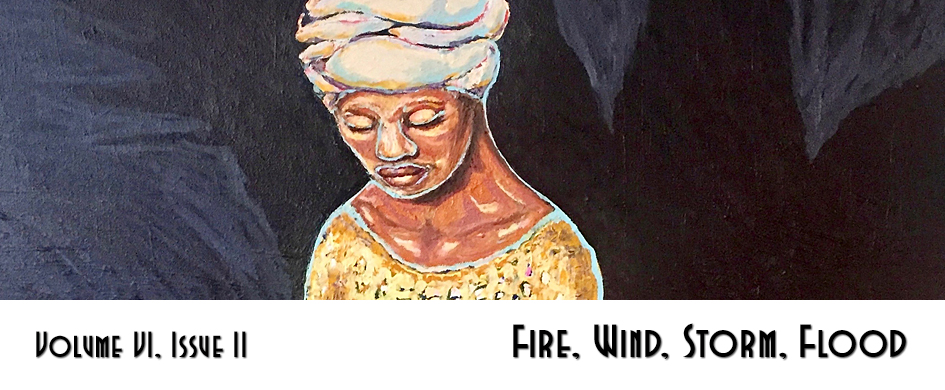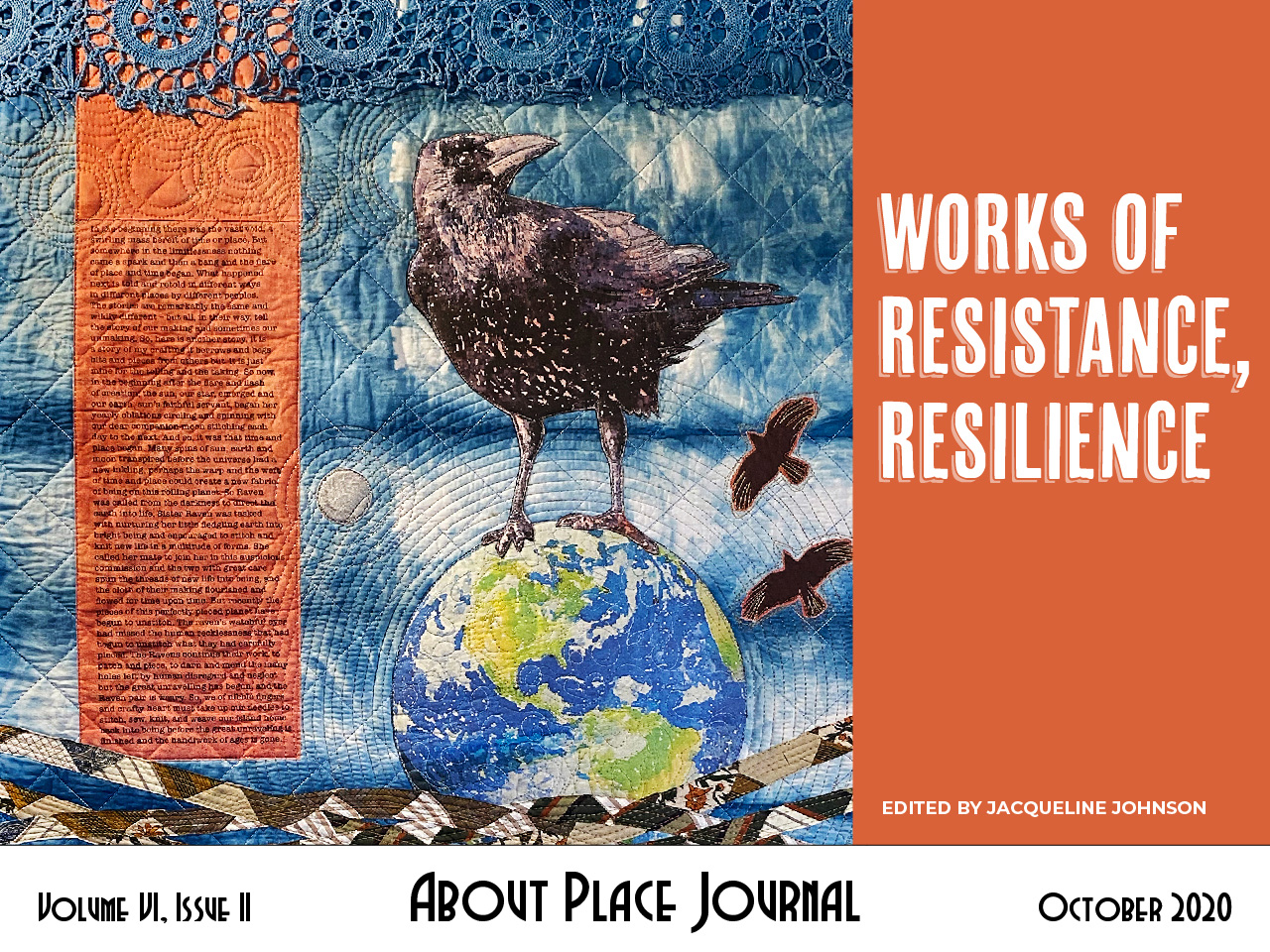snagging migrant sleeves that cross midnight borders,
evade the heat-seeking binoculars of border police.
Rain, and we gather isolated in desert yards to inhale the moist leaf scent
of transplanted eucalyptus, rugged native mesquite.
Rain, and anxiety’s sweat crouches in the shadows of mourning doves
hunkered in willows hiding behind their long green hair.
Rain, we say, and we turn off the natter of news analysts
justifying chain link cages where refugee children curl
crying for parents detained for the crime of being poor.
Rain, and we pull the hems of sea green sheets closer
over our shoulders turning free on an axis of dreams.
Rain, and we lick desire’s swollen lips
above our thighs tightening beyond fear.
Rain, and ravens sleeps late, unmoved by coyotes
ripping a clutch of young rabbits pinned beneath their hunger.
Rain, and aloes bulge tumescent skins,
exhaling bombs of oxygen for us to breathe.
Rain, and tires pull bandages of speed from the lost traveler’s eyes.
Rain, and the chapped hands of wind rest in dawn’s quiet lap.
Rain, and grandmothers age backward to hope’s coy glance
undressing loneliness, tossing off musty wool blankets
for the next street dance in semi-dark.
Rain, we say, flexing knees, practicing for the final leap back to stars
whose language we’ve taken a lifetime to learn.
Rain, and cell phones turn themselves off, tired of gossip,
of wheedling presidential tweets.
Rain, and lovers find the lost faces of their beloveds under the eaves.
Rain knits a cool shawl of light to comfort misery’s desert-scarred skin.
Rain, we say, and creosote sweet leaps to each migrant’s lips.


